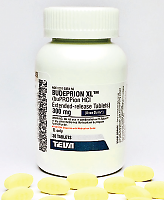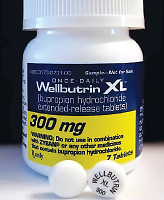When does “equivalent” mean “not really the same?” That’s a question the Food and Drug Administration (FDA) is likely wrestling with after its October 3 announcement that Budeprion XL 300 mg—a generic version of bupropion manufactured by Impax Laboratories and distributed by Teva Pharmaceuticals—is not therapeutically equivalent to GlaxoSmithKline’s Wellbutrin XL 300 mg, the product for which it is an approved generic.
In the announcement, the FDA said it had changed the therapeutic equivalence rating for Budeprion XL 300 mg in the agency’s “Approved Drug Products With Therapeutic Equivalence Evaluations” from AB to BX, signifying that Budeprion XL 300 mg fails to demonstrate therapeutic equivalence to the branded product Wellbutrin XL 300 mg.
Impax and Teva then voluntarily stopped manufacturing and shipping the product to their customers, issuing them detailed information about the decision.
The move came as a surprise to many, but not as much to patients who have claimed since Budeprion XL 300 mg was approved in December 2006 that it was not as effective as the Wellbutrin version.
Budeprion XL 300 mg is one of five generic versions of Wellbutrin XL 300 mg that the FDA has approved (others are manufactured by Anchen, Actavis, Watson, and Mylan), but the complaints were focused on Budeprion XL 300 mg. (The 150 mg version of Budeprion was not a target of the complaints and was not withdrawn from the market.)
Closer scrutiny of the FDA’s method for determining bioequivalency of the product prior to market approval reveals a possible source of the discrepancy. Each of the generic versions of bupropion was approved based on bioequivalence studies comparing the 150 mg strength of the products with Wellbutrin XL 150 mg. Studies were not performed directly on the 300 mg strength, but the results were extrapolated to establish bio-equivalence of the 300 mg products.
That methodology, said the FDA, was “based on … guidance at the time the products were approved” and was intended to avoid exposing healthy study subjects to the increased risk of seizures known to be associated with higher doses of bupropion.
When complaints first arose in 2006, the FDA asked Impax/Teva to conduct a bioequivalence study of the product, indicating that the study should include patients who had reported lack of efficacy after switching from Wellbutrin XL 300 mg to Budeprion XL 300 mg. Impax/Teva began the study but terminated it in late 2011, saying it was unable to recruit a significant number of affected patients to generate the necessary data.
But public interest in bioequivalence data led the FDA to sponsor its own study of the two products, recruiting 24 healthy volunteers in whom to measure both the rate and extent of release of bupropion into the blood. Its results, which became available in August, revealed a problem: Budeprion XL 300 mg tablets failed to release bupropion into the blood at the same rate and to the same extent as Wellbutrin XL 300 mg.
Although the FDA believes these results to be unique to the Budeprion XL 300 mg formulation, it has recently asked each of the other manufacturers of approved generic bupropion to conduct its own bioequivalence studies and submit data from those studies no later than March 2013.



